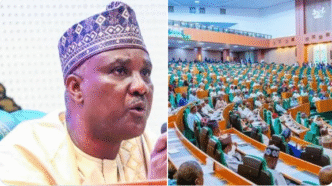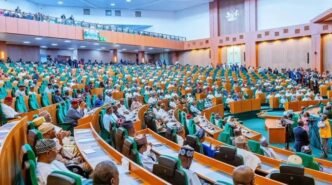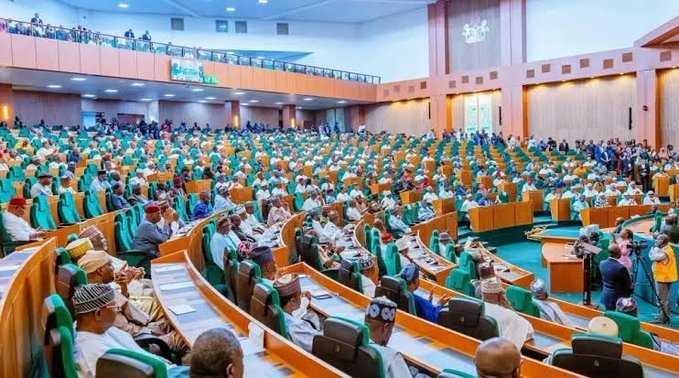Abuja, Nigeria – The Speaker of the House of Representatives, Hon. Abbas Tajudeen, has thrown the weight of the Green Chamber behind President Bola Ahmed Tinubu’s borrowing policy, describing it as an essential strategy for steering Nigeria’s economy toward sustainable growth and reducing poverty levels across the country.
Tajudeen’s position comes at a time when the Federal Government is facing intense scrutiny over its rising debt profile, with concerns from economists, civil society groups, and opposition figures about the long-term implications of borrowing on Nigeria’s fiscal stability. However, the Speaker insists that borrowing, when properly managed and directed into productive sectors, remains a viable tool for economic transformation.
Lawmakers Express Confidence in Borrowing Policy
Speaking after a closed-door session with key committee heads on Monday, Abbas Tajudeen explained that the House of Representatives will continue to support President Tinubu’s economic blueprint, particularly as it relates to raising capital for critical infrastructure and social development programs.
“We must understand that borrowing is not inherently bad. What matters is how we use the funds. The House of Representatives stands firmly behind President Bola Ahmed Tinubu’s borrowing strategy because it is indispensable for our national development and poverty reduction efforts,” the Speaker said.
According to him, borrowing remains a global practice employed by both developed and developing nations to bridge financial gaps, accelerate infrastructure development, and stimulate job creation. He noted that Nigeria’s economic challenges, including high unemployment, inflationary pressures, and revenue shortfalls, necessitate urgent financing mechanisms that cannot be met by government revenues alone.
Nigeria’s Debt Landscape: Context and Concerns
Nigeria’s total public debt has continued to rise, crossing the ₦100 trillion threshold in 2025, according to data from the Debt Management Office (DMO). This figure includes both domestic and external borrowings. Critics argue that the growing debt service-to-revenue ratio, which in some years exceeds 70%, leaves little room for investment in health, education, and other critical sectors.
Nonetheless, the Tinubu administration insists that the borrowings are tied to long-term growth strategies. Projects in transportation, power, agriculture, and social welfare are said to be the primary beneficiaries of these loans, with the goal of boosting productivity, improving livelihoods, and laying the foundation for a stronger economy.
Abbas Tajudeen aligned with this perspective, stressing that the legislature is committed to providing strict oversight to ensure borrowed funds are judiciously utilized.
The Green Chamber’s Oversight Role
The Speaker emphasized that the House will not merely rubber-stamp borrowing requests but will exercise its constitutional duty to scrutinize every loan agreement. “Our support for the President’s borrowing strategy does not mean we will turn a blind eye. Every request will go through due process, and our committees will ensure that funds are allocated to projects with measurable impact,” he assured.
He added that accountability frameworks will be reinforced, with periodic reports demanded from ministries, departments, and agencies (MDAs) that benefit from loan disbursements. The House, he said, is also committed to engaging with international lenders and development partners to negotiate favorable terms that do not mortgage Nigeria’s future.
Borrowing for Growth, Not Consumption
One of the major criticisms leveled against past administrations is the alleged misuse of borrowed funds for recurrent expenditure, particularly salaries and overheads, instead of capital projects. Tajudeen made it clear that the current National Assembly will resist such tendencies.
“Borrowing for consumption is unacceptable. We must ensure that every dollar or naira borrowed translates into tangible assets, whether it is a road, a hospital, a school, or a power project that benefits Nigerians directly,” the Speaker declared.
This position aligns with President Tinubu’s repeated assurances that his administration’s loans will be project-tied and growth-driven.
Economists React to the Speaker’s Endorsement
While Tajudeen’s remarks have been welcomed in government circles, reactions from economic experts remain mixed. Some analysts argue that Nigeria’s borrowing spree risks creating a debt trap that future generations will struggle to escape.
Dr. Patrick Eze, a development economist based in Lagos, cautioned that without robust fiscal discipline, the Speaker’s optimism might prove misplaced. “It is one thing to borrow and another to spend wisely. Nigeria’s history with loan utilization has been marred by corruption and inefficiency. The Speaker is right that borrowing is not inherently bad, but we must learn from past mistakes,” he said.
On the other hand, Professor Fatima Bello of Ahmadu Bello University, Zaria, welcomed the Speaker’s stance, saying it reflects a pragmatic understanding of Nigeria’s realities. “With dwindling oil revenues and rising population pressures, Nigeria cannot rely solely on internally generated revenue. Borrowing, if channeled into productive ventures, can indeed stimulate growth and lift millions out of poverty,” she argued.
Poverty Reduction as a Central Goal
Tajudeen underscored poverty reduction as a key reason for backing Tinubu’s borrowing policy. Nigeria, with over 200 million people, continues to face severe poverty challenges, with the World Bank estimating that more than 90 million Nigerians live below the poverty line.
He insisted that loan-funded programs in agriculture, small and medium-scale enterprises (SMEs), and social investment initiatives could play a critical role in creating jobs, improving food security, and reducing inequality.
“We cannot talk about sustainable development without tackling poverty head-on. The President’s borrowing strategy is not about piling debt but about creating opportunities for the ordinary Nigerian. That is why the House supports it,” Tajudeen stated.
Political Implications
The Speaker’s declaration also carries significant political weight. By aligning firmly with President Tinubu, Abbas Tajudeen reinforces the unity between the executive and legislative arms of government, a relationship often strained in Nigeria’s political history.
Analysts believe the move could strengthen Tinubu’s hand in pushing through key reforms, including subsidy removal cushioning measures, tax reforms, and public sector efficiency drives. However, it may also invite criticism from opposition lawmakers who accuse the government of mortgaging Nigeria’s sovereignty to foreign creditors.
Looking Ahead
As Nigeria navigates its economic challenges, the debate over borrowing will remain at the center of national discourse. For Abbas Tajudeen and the House of Representatives, the message is clear: support for borrowing is conditional on transparency, accountability, and impact.
The Speaker concluded with a call for collective responsibility. “Economic growth is not the responsibility of the President alone. It requires the cooperation of lawmakers, state governments, private sector actors, and ordinary citizens. We are all in this together, and borrowing is one of the tools we must use wisely to secure our future.”
Conclusion
The Speaker of the House of Representatives, Abbas Tajudeen, has placed the Green Chamber firmly behind President Bola Tinubu’s borrowing strategy, hailing it as a necessary pathway to economic growth and poverty alleviation. While concerns about Nigeria’s rising debt burden persist, the Speaker’s endorsement reflects a commitment to oversight, accountability, and ensuring that borrowed funds are used to transform lives rather than perpetuate dependency.
For now, the nation watches closely as the Federal Government continues to strike a delicate balance between borrowing for growth and safeguarding Nigeria’s financial sovereignty.














